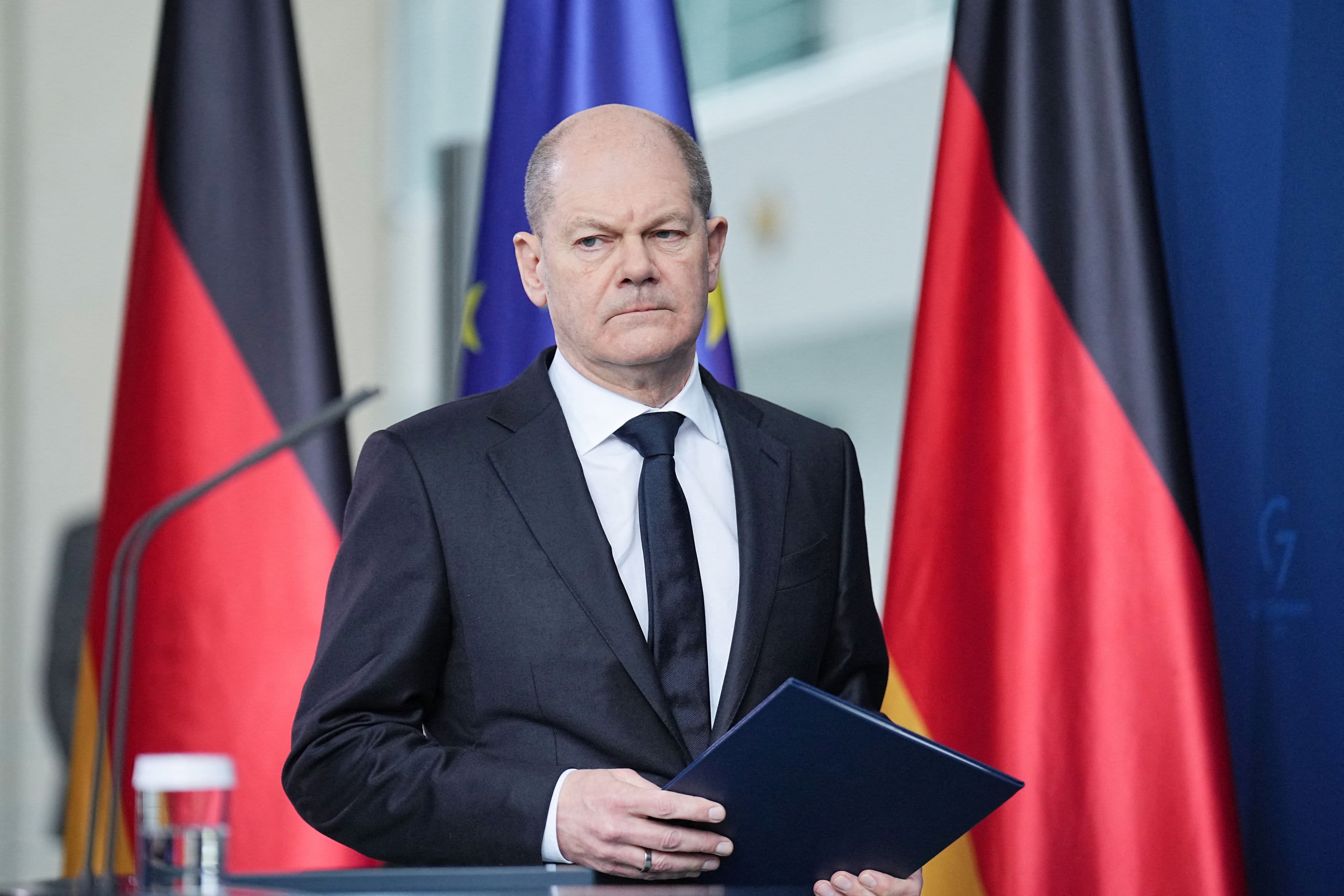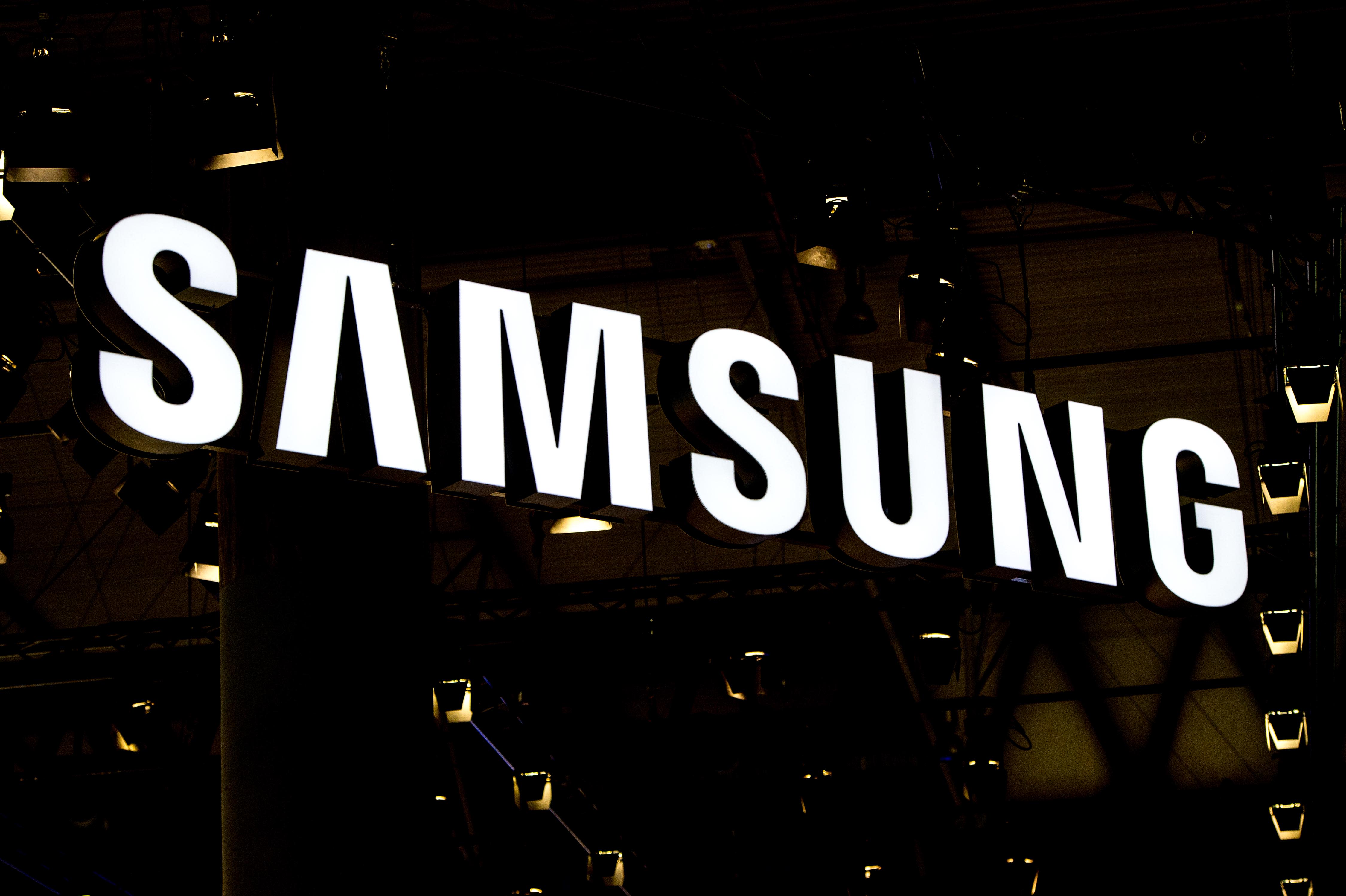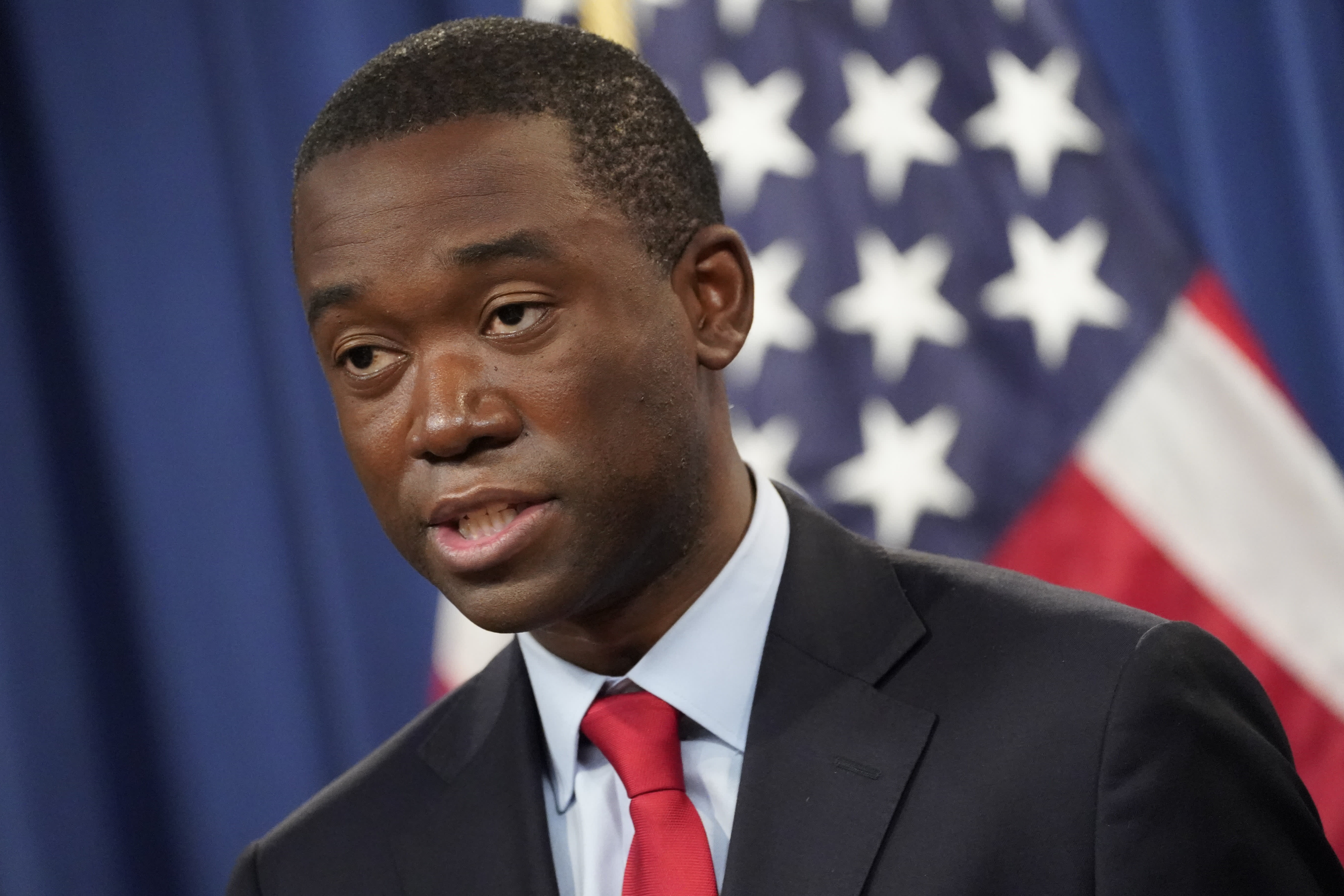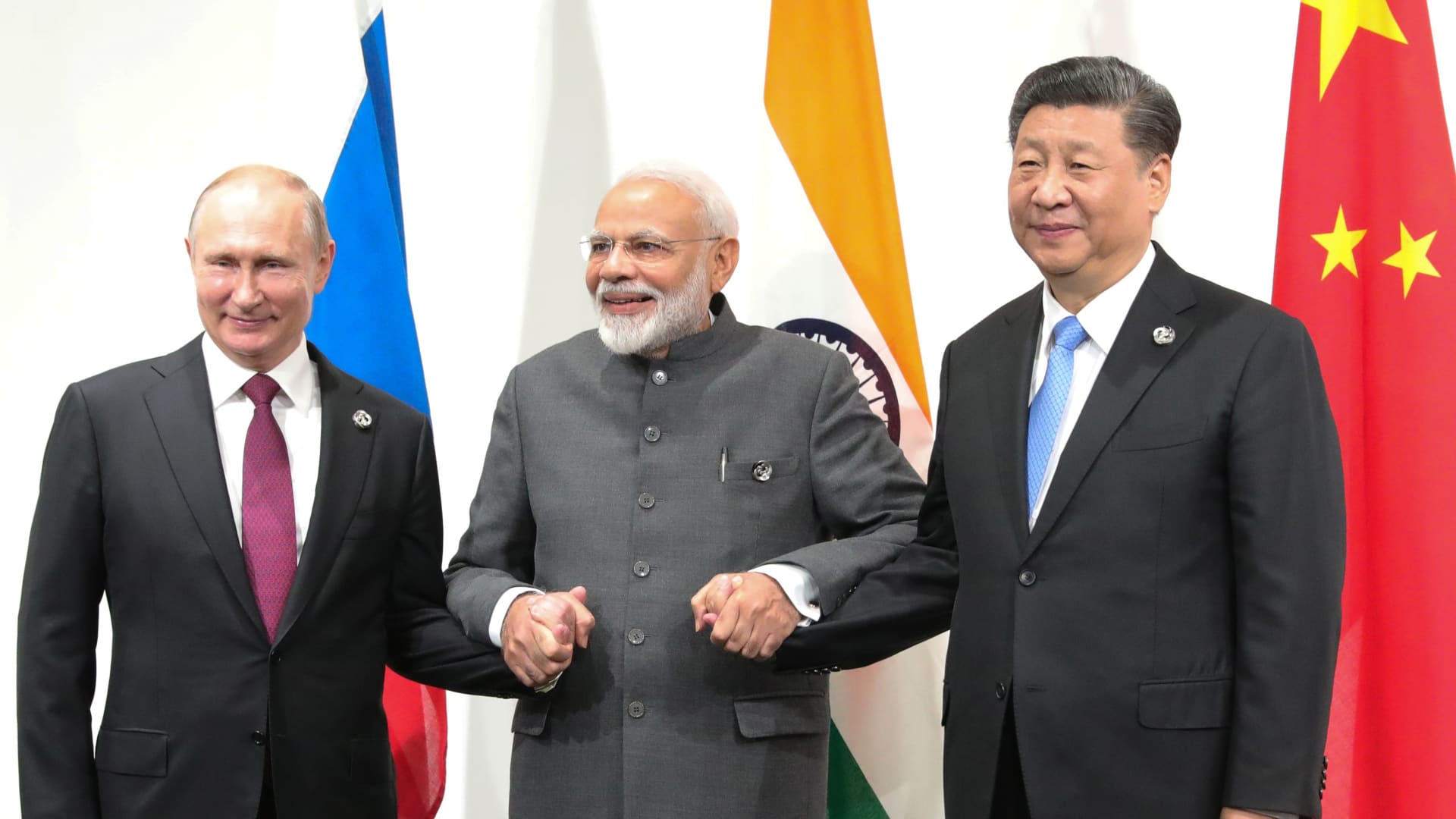Twitter drops labels for President Joe Biden, state-affiliated and government-funded media
The labels for both government officials and state-affiliated media were introduced in 2020 as part of an effort to protect political discourse on the platform.
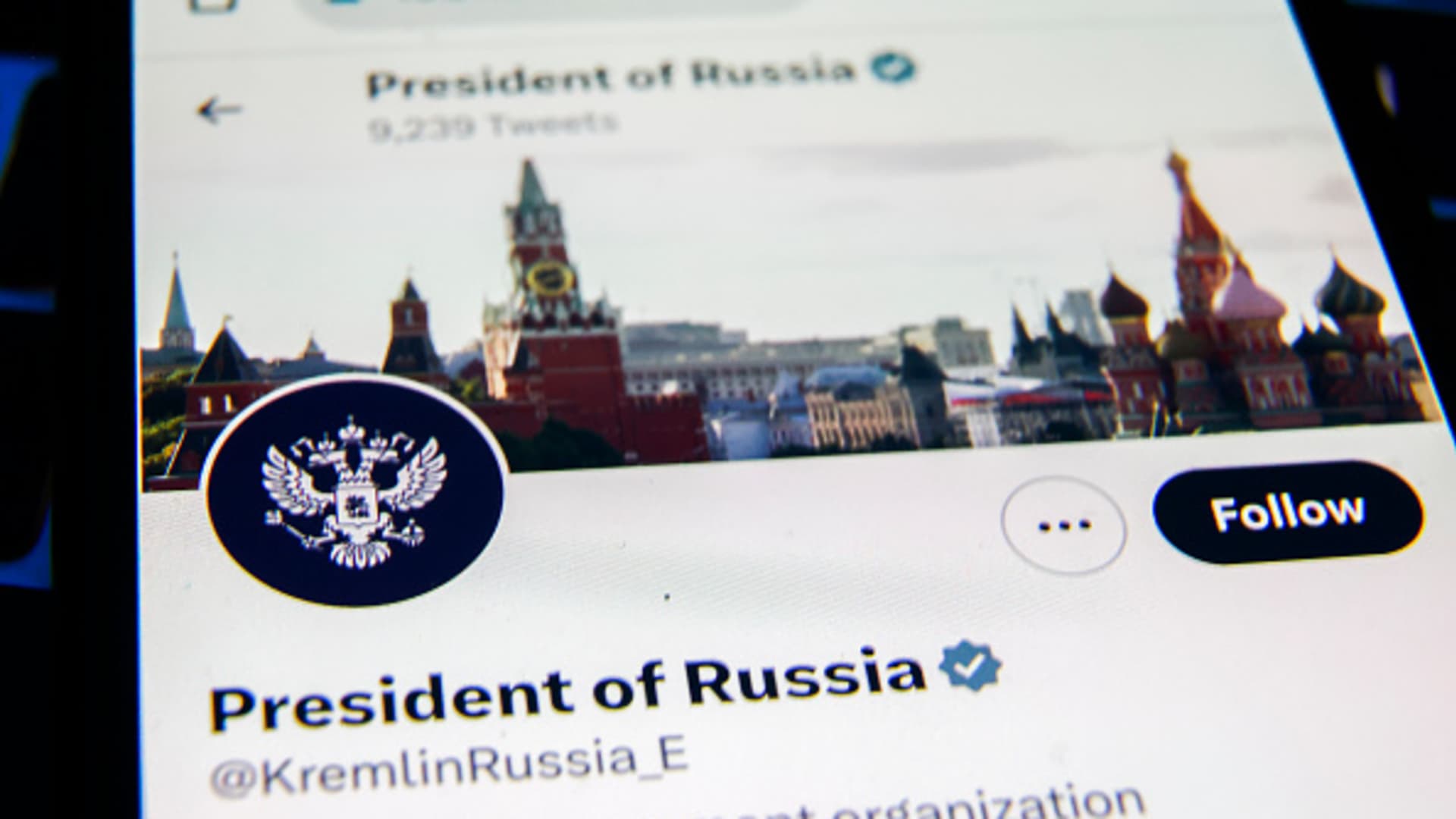
Official Twitter account of Vladimir Putin, President of Russia, is displayed on a mobile phone screen photographed for the illustration photo. Krakow, Poland on January 30, 2023.
Beata Zawrzel | Nurphoto | Getty Images
Elon Musk-owned Twitter has quietly dropped labeling that identified state-affiliated and government-funded accounts for officials and media outlets, including designations used to identify President Joe Biden's account as authentic.
The update comes a day after the company purged legacy verified users of their blue checkmarks, raising concerns that misinformation could more easily spread on the site.
As of Friday morning, the personal and official accounts of the U.S. president, first lady Jill Biden and Vice President Kamala Harris no longer displayed labels identifying them as government officials.
Labels were also removed from Russia- and China-affiliated media outlets and journalists, including the official account of the president of Russia, which has been unused since the country's invasion of Ukraine last year.
The labels for both government officials and state-affiliated media were introduced in 2020 as part of an effort to protect political discourse on the platform.
The shift on Friday also saw the removal of controversial labels added to media accounts earlier this month.
Musk's Twitter had marked the accounts of several media outlets, including NPR, the BBC and the Canadian Broadcasting Corp., as "state-affiliated." The designation alarmed executives and journalists at the outlets.
In response to those labels, NPR announced it would stop using Twitter in an official capacity to disseminate reporting.
The BBC is funded by a nationally imposed TV license but doesn't meet the conventional definition of "state-affiliated media." That moniker is typically reserved for outlets like Russia Today, which receives funding from the Russian government and has been described by the U.S. State Department as a propaganda outlet.

 Koichiko
Koichiko 







